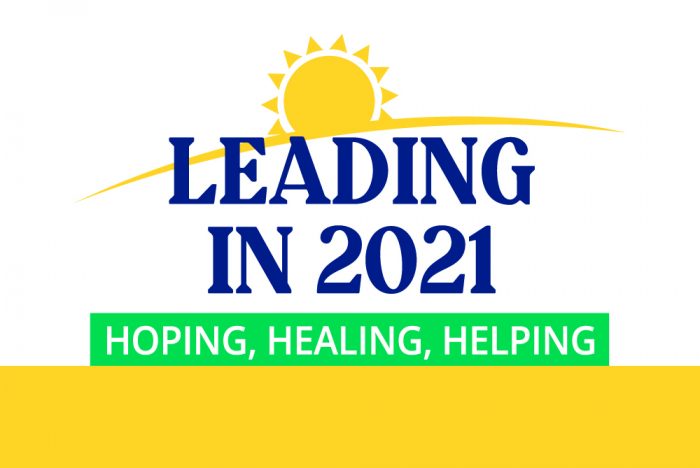CDC Designs New Online Concussion Training for School Professionals
The Centers for Disease Control and Prevention (CDC) has designed a new online concussion training for school professionals. This new free training, HEADS UP to Schools: Online Concussion Training for School Professionals, which takes 45-60 minutes to complete, is designed to help classroom teachers (grades K-12), school administrators, paraprofessionals, teacher’s aides, and other staff who work with students to understand the following:
- How a concussion may affect a student’s learning, emotions, and behavior;
- How to identify and monitor signs and symptoms of concussion; and
- How to help students successfully return to school and recover from a concussion.
Preview the CDC HEADS UP Trainings on Concussion:
- Training for coaches
- Training for healthcare providers
- Videos on concussion safety
- Graphics and infographics
National Disability Vote Summit 2021

The National Disability Rights Network and the American Association of People with Disabilities will be hosting the 2021 Disability Vote Summit on Tuesday, September 14, 2021, from 12:00 pm–4:00 pm EST.
At the virtual summit, they will explore:
- The power of the disability vote
- Lessons learned from 2020 turnout
- How to use data to mobilize the disability vote
Confirmed presenters include representatives from the National Disability Rights Network, the National Federation of the Blind, SABE Go Voter Project, and more! Join national disability advocates, state and local organizers, policymakers, and others who are working to get out the disability vote.
If you have any questions, please contact Lilian Aluri or Jack Rosen.
National Council for Mental Wellbeing Releases CRN Report “The Provider Relief Fund: FAQ”
American Rescue Plan Act Home and Community-Based Funding Update
Equality Act — Call for Provider Support of LGBT Equality Legislation

RCPA was approached by a coalition of organizations in support of federal nondiscrimination protections for the LGBT community, including Freedom for All Americans, the Bradbury-Sullivan LGBT Community Center of Allentown, and other state and local partners.
The RCPA Diversity, Equity, and Inclusion Committee purpose statement reads that “the committee will actively challenge systemic racism and social injustice through advocacy for legislation, policies, and practices that promote equity, providing guidance and support for DEI initiatives within RCPA member organizations…” This initiative is in alignment with RCPA DEI efforts.
Currently, federal law lacks explicit nondiscrimination protections for the LGBT community in housing, credit, lending, federally funded programs, and public spaces like restaurants, stores, theaters, and hospitals. Additionally, 29 states, including Pennsylvania, lack state laws that explicitly protect LGBT people from discrimination.
This coalition is soliciting supporters from Pennsylvania’s community of service providers — those who support and care for the most vulnerable Pennsylvanians, including LGBT Pennsylvanians who face additional challenges due to the lack of nondiscrimination protections. Service providers are an important and trusted voice in Pennsylvania, and your inclusion will help to demonstrate the broad level of support for nondiscrimination statewide.
By signing on you to this initiative, your organization will join a diverse coalition of service providers supporting the nondiscrimination protections for the LGBT community. Your organization’s name will be shared publicly and will also be shared with Pennsylvania’s US Senators.
To offer your organization’s support, follow this link to join Pennsylvania Service Providers for LGBT Nondiscrimination Protections and make your voice heard.
Please reach out to Jack Phillips or Cindi Hobbes with any questions.
Leading in 2021: Hoping, Healing, Helping Conference Updates
In addition to the general sessions, including national updates that will provide valuable information to all, we have several break-out sessions that will be offered live each day during our 2021 Conference. These sessions include:
Tuesday September 28, 2021
- Preparing Infrastructure for Managed Care in ID/DD Providers
- Coordinating Measurement-Based Care: How the Maryland Community Behavioral Health Association Improved Treatment Outcomes and Leveraged Their Data
- Leadership in Technology for a New Era
- The U.S. Department of Health & Human Services Regional Approach to Address Healthy Equity
- Magical Metaphors: Creating a Shared Language Within a CBT Treatment Setting
- Without a Playbook: Navigating the Pandemic While Still Moving Forward
- Enhancing Whole Health and Wellness: Working Works When Using Social Security Work Incentives
- Linking Up! CANS Across the Tristate Area, and How This Can Optimize Care
- Creating an Employee-Centered Culture to Attract & Retain Staff
- Mobile Buprenorphine: A Novel Method for Engaging Populations in Substance Use Disorder Care
- Improving Access to Mental Health and Substance Use Disorder Services For OUR Older Adults. YOU Can Help!
Wednesday September 29, 2021
- Top Funding Resources for Assistive Technology in Pennsylvania
- Measuring What Matters Most: Leveraging the Power of Business Intelligence to Drive Organizational Improvements
- People Like Me: Working with Vulnerable Populations Using an Integrated Model to Behavioral Health Care
- How COVID-19 Changes Our View of Emergency Preparedness: Lessons Learned from COVID-19 and Key Strategies for Preparedness Moving Forward
- The Great Reset: Leadership Beyond the Pandemic
- “Link Outside the Box”: Using Remote Services and Technology to Provide Support Services For Individuals With IDD
- Promoting Motivational Interviewing Spirit and Skills with Paraprofessional Staff
- COVID-19 at 18 Months: How the Pandemic Has Changed Us and Society
- Strategies for Reducing Screen Time Fatigue
Thursday September 30, 2021
- A Collaborative Agency-Based Approach to Implementing a Pandemic-Induced Practice-Based Change to Telehealth
- Concussion (TBI) and Behavioral Health (The Missing Peace): Where Are We Now?
- Trauma-Informed Support for People with Intellectual Disabilities
- No Longer Just a Plan — Value Based Payments in Community HealthChoices in 2022
- The Cultural Competency in the Clinical Assessment & Treatment of Adults with IDD and Co-Occurring Mental Illness
- The Path to VBP is Paved With Quality: A National Perspective on Measures of Quality in IDD Services
- Post-Incarceration Care: How to Create an Effective Transitional Model
- Implementing Trauma-Informed PA (TIPA): PRTFs Becoming Trauma-Informed
- We Hear You!
- Expanding Integrated Primary Care for People with IDD: Replicable Models and Policy Implications
- The Unexpected Implications of the COVID-19 Pandemic
- Time Banking: A Grassroots Resource for Increased Personal Outcomes and Community Development
There will also be over 20 “on-demand” sessions on many timely subjects and topics, such as Leadership, Diversity, and Remote Supports and Services.
Visit the RCPA Conference website for specific updates to the schedule, posted as they become finalized.
Handouts Available From Sept 1 MLTSS Subcommittee Meeting
Today, the Managed Long-Term Services and Supports (MLTSS) Subcommittee met via webinar for their monthly meeting. The agenda included:
- An update from Jamie Buchenauer, Deputy Secretary, Office of Long-Term Living (OLTL), which focused primarily on updates on issues raised by the Statewide Advocacy Group;
- A presentation on the Consumer Assessment of Healthcare Providers and Systems (CAHPS) Health Plan Survey; and
- Updates regarding PHW, UPMC, and AHC from the Community HealthChoices (CHC) Managed Care Organizations (MCOs) on CHC MCO Resource Tools.
In addition, there is a meeting transcript from the meeting.
ARPA One-Time Payments: Notification, Instructions, & Timelines
Governor Wolf signed Act 24 of 2021, which allocates $282 million of federal funding from the American Rescue Plan Act (ARPA) for payments to nursing facilities (NF), personal care homes (PCH), and assisted living residences (ALR). To qualify for the one-time payment, a facility must be in operation as of June 1, 2021.
These one-time ARPA funds must be used for COVID-19 related costs not otherwise reimbursed by federal, state, or other sources of funding. The Office of Long-Term Living (OLTL) sent a letter dated August 30, 2021 with details about the payments, including information about the approved use of and reporting on these funds. For reference, a sample of the letter, a list of qualifying entities and payment amounts, and a copy of the Facility Acceptance Form are available on the DHS Long-Term Providers page under the heading “American Rescue Plan Act (ARPA) Funding.”
Nursing Facility (NF) Payments
- ARPA NF Payment #1 – Medical Assistance (MA) Days
The total funds available for a one-time payment to Non-Public and County NFs pursuant to Act 24 (ARPA NF Payment #1) is $198,000,000. Each facility’s ARPA NF Payment #1 is calculated by dividing the facility’s MA days, as reported for the NF Assessment for the third quarter of calendar year 2019 by 4,976,570, the revised total 2019 MA days for all facilities, as reported for the NF Assessment for the third quarter of calendar year 2019, to obtain an NF specific quotient. Each NF’s quotient is multiplied by $198,000,000 to determine its payment amount.
- ARPA NF Payment #2 – Licensed NF Beds
The total funds available for a one-time payment to Non-Public and County NFs pursuant to Act 24 (ARPA NF Payment #2) is $49,000,000. Each facility’s ARPA NF Payment #2 is calculated by dividing the facility’s licensed NF beds as of March 31, 2020 by all licensed Non-Public and County NF beds as of March 31, 2020 to obtain an NF specific quotient. Each NF’s quotient is multiplied by $49,000,000 to determine its payment amount.
NFs enrolled in MA do not need to submit requests for funding. All NFs enrolled in MA will receive the funding, provided they meet the criteria described above. OLTL will distribute the funding as a one-time gross adjustment. NFs enrolled in MA can expect to see the payment appear as a gross adjustment transaction/lump sum payment on the PROMISe remittance advice dated September 6, 2021, with payment occurring September 15, 2021.
NFs not enrolled in MA must complete the Facility Acceptance Form and return it by October 15, 2021, to DHS. Providers may also fax the completed form to the OLTL Bureau of Finance at (717) 787-2145. Checks will be issued and mailed in the order in which DHS receives Facility Acceptance Forms.
PCH/ALR Payments
- ARPA PCH/ALR Payment #1 – Licensed Occupancy
The total funds available for a one-time ARPA payment to PCHs and ALRs pursuant to Act 24 (ARPA PCH/ALR Payment #1) is $27,000,000. Each PCH/ALR Payment #1 is calculated by dividing the licensed occupancy of the PCH or ALR, as determined by the most recent DHS inspection on or before April 1, 2020, by the total licensed occupancy of all PCHs and ALRs, including those with a special care designation, as determined by the most recent DHS inspection on or before April 1, 2020, to obtain a facility-specific quotient for each PCH and ALR. Each facility’s quotient is multiplied by $27,000,000 to determine its payment amount.
- ARPA PCH/ALR Payment #2 – Supplemental Security Income (SSI) Residents Served
The total funds available for a one-time ARPA payment to PCHs and ALRs pursuant to Act 24 (ARPA PCH/ALR Payment #2) is $3,000,000. Each ARPA PCH/ALR Payment #2 is calculated by dividing the number of individuals for whom the PCH/ALR received a state SSI payment from DHS in March 2020 by the total of all PCH’s/ALR’s individuals for whom a state SSI payment was made in March 2020, to obtain a facility-specific quotient. Each PCH’s/ALR’s quotient is multiplied by $3,000,000 to determine its payment amount.
PCHs and ALRs must complete the Facility Acceptance Form and return it by October 15, 2021, to DHS. Providers may also fax the completed form to the OLTL Bureau of Finance at (717) 787-2145. Checks will be issued and mailed in the order in which DHS receives the Facility Acceptance Forms.
Act 24 of 2021 requires the ARPA funding to be obligated by December 31, 2024, and spent by December 31, 2026, or returned to the Commonwealth. Additionally, these funds must be used for COVID-19 related expenses. Providers must keep documentation to prove that these funds were used for their response to the COVID-19 pandemic in case of an audit. Any person or entity accepting an ARPA payment agrees to provide documentation to DHS, upon request, for purposes of determining compliance with Act 24 requirements. Instructions on expenditure reporting will be provided at a later date.
DHS recommends that providers consult their accountants or attorneys for further clarification on acceptable uses of ARPA funding. DHS encourages providers to review guidance for eligible expenditures on the U.S. Department of the Treasury website in their Compliance and Reporting Guidance.
NFs that have questions about the information should contact the OLTL Provider Helpline at 800-932-0939. PCHs and ALRs that have questions about the information should contact the Operator Support Hotline at 866-503-3926 or via email.
FMS Stakeholder Meeting Scheduled for September 3
The Office of Long-Term Living (OLTL) has announced that the Financial Management Services (FMS) stakeholder meeting has been scheduled for September 3, 2021 from 1:00 pm–2:30 pm. This public meeting will focus on the upcoming changes for the administration of FMS under the Community HealthChoices (CHC), OBRA Waiver, and Act 150 programs. Representatives from OLTL and the CHC Managed Care Organizations (MCOs) will be in attendance to discuss upcoming changes. The meeting details are below:
Join from the meeting link
Join by meeting number
Meeting number (access code): 132 810 8394
Meeting password: wyB6SHMKn33
Tap to join from a mobile device (attendees only)
+1-408-418-9388,,1328108394## United States Toll
+1-202-860-2110,,1328108394## United States Toll (Washington D.C.)
Join by phone
+1-408-418-9388 United States Toll
+1-202-860-2110 United States Toll (Washington D.C.)
Global call-in numbers
Join from a video system or application
Dial 1328108394@pa-hhs.webex.com
You can also dial 173.243.2.68 and enter your meeting number.















